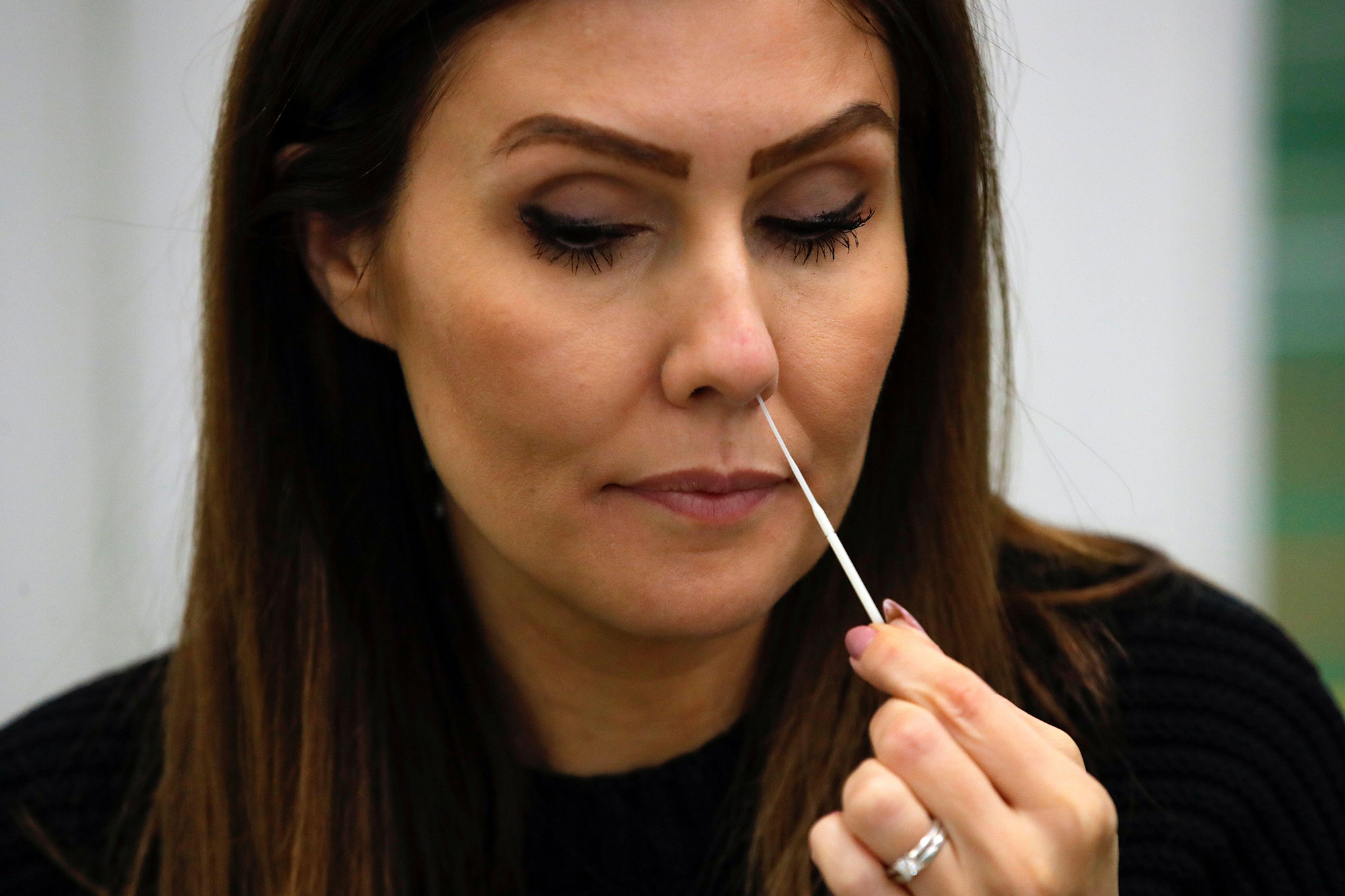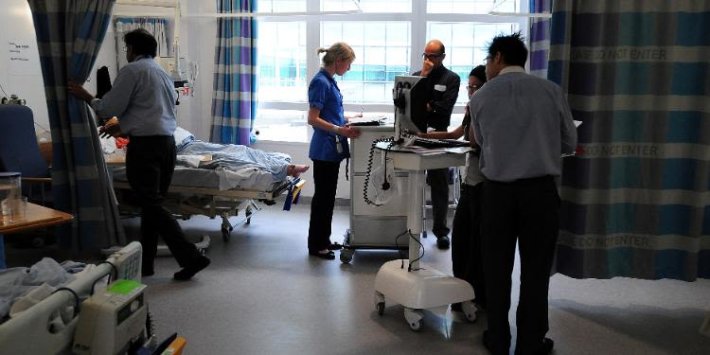The Key Scientific Advice Boris Johnson Was Given Before Ending Covid Restrictions
7 min read
Boris Johnson has toned down his calls for 19 July to be England's "freedom day" after the scientific data concluded the future course of the pandemic will be highly uncertain.
The Prime Minister said on Monday that he believed the government's four key tests for lifting lockdown had been met and confirmed almost all legal restrictions would end on 19 July.
He has previously promised decisions to move to each new step on the roadmap would be made using "data, not dates" so as not to overwhelm the health service if Covid was not sufficiently under control in line with their proposed timings.
Johnson has dropped his "freedom day" rhetoric and insisted that "this pandemic is not over", but what happens next looks more uncertain than ever.
Here's the key scientific data underpinning the PM's decision, and what scientists have warned could happen in the next few crucial months of the pandemic.
Infection Rates
With health secretary Sajid Javid warning the UK could face a daily infection rate of 100,000 by mid-Summer, it is clear that ending lockdown restrictions will result in a significant wave of new infections.
But the latest Sage data, released after the PM's announcement, show there is major uncertainty over how large that "exit wave" could be, or how quickly the virus could spread.
"All modelled scenarios show a period of extremely high prevalence of infection lasting until at least the end of August," the group concluded.
"There is high uncertainty around both the scale of the peak in prevalence and in the number of confirmed cases that this would correspond to."

Even with the link between infection and severe illness being weakened by the vaccines, Sage warned a major surge would ultimately result in more hospitalisations and death, increased numbers of people suffering with long-Covid, and a rising rate of staff absence, including among the NHS workforce.
One of the other major risks of surging infection rates, the group warned, was the increased chances of an "escape variant" emerging.
This new kind of variant – unlike the Alpha and Delta variants most commonly seen in the UK – occurs when the virus mutates in a vaccinated person, potentially allowing it to become more resistant to the current vaccine crop and any natural immunity developed by previous infection.
According to medical experts at John Hopkins University and University of Washington, that risk is amplified by the strategy of leaving longer gaps between first and second doses to ensure wider vaccine coverage among the population.
In its 7 July briefing, Sage warned the "combination of high prevalence and high levels of vaccination creates the conditions in which an immune escape variant is most likely to emerge".
While the group insisted that the likelihood of such a variant emerging was "unknown", they said if it were to happen it would "present a significant risk both in the UK and internationally".
A major rise in cases would also present a "challenge" for both the UK's contact tracing programme and test capabilities, with Sage adding that "if PCR testing and genomic sequencing capacity are overwhelmed, it may not be possible to rapidly identify a new variant."
Impact Of "Personal Responsibility"
With the final lockdown lifting, England's efforts to battle the pandemic will largely rest on the vaccine programme and the behaviour of the public.
Ministers have already stated "personal responsibility" will replace the need for legal restrictions, with even basic Covid-protection measures, such as the use of face coverings on public transport being left down to individual choice.
After weeks of loose messaging, including senior cabinet figures expressing their intentions to ditch their face coverings, the PM has insisted that new "guidance" will be issued urging the public to continue being cautious.
That will include a plea for the continued use of face coverings in crowded indoor spaces, a staggered return to work, and support for hospitality businesses to make use of the NHS covid vaccine certification.

The more cautious approach comes after scientific modelling concluded the future trajectory of the pandemic will be largely guided by the pace at which people return to pre-pandemic behaviours, with chief scientific adviser Patrick Vallance warning a rapid return would lead to a "very, very big rise" in infections.
According to modelling produced by Warwick University, a slow return to pre-pandemic behaviours – taking around seven months – would result in peak daily hospitalisations hitting between 500-950 while a rapid return over the course of a month could push daily admissions to between 1,300 and 4,800.
While there is significant uncertainty over the future response, Sage concluded it was "likely" that hospitalisations would still reach a peak of at least 1,000 per day in the coming months.
To reduce a higher peak, Sage added it would be "important for messaging to communicate the continued risks from Covid-19 and effective mitigations, including information on how to minimise within household spread".
They added: "Communication targeted to both individuals and organisations will be important."
They said if the government hoped to prevent putting the NHS under pressure that "the priority should be to avoid a very rapid return to pre-pandemic behaviour which could lead to a peak in hospitalisations similar to (or possibly even higher than) previous peaks.
Hospitals Face Major Pressures
Despite the scientific data showing that hospitals will face increased pressure as restrictions end and infections rise, Boris Johnson claimed there was no risk of the NHS being overwhelmed – one of the government's four key tests for pressing ahead with the roadmap.
But the analysis produced by the government's scientific advisers present a less clear picture.
While the central assumption is that hospital rates will rise to at least 1,000 daily admissions in a future peak, modelling considered by SPI-M finds the scale remains "highly uncertain".
"While most modelled scenarios have peaks lower than in January 2021, a resurgence of this scale of hospitalisations cannot be ruled out," they added. Sage warned that even if the figures remained below previous peaks that "the number of admissions may become challenging for the NHS".
Sage warned that even if the figures remained below previous peaks that "the number of admissions may become challenging for the NHS".
Their concerns come amid record numbers of people attending A&E and urgent care centres throughout June, with several hospitals across the UK declaring emergencies and doctor's groups warning patient safety is already being put at risk because of the pressure.
To reduce the possibility of hospitals being overwhelmed, Sage urged the government to take immediate efforts to pre-set hospital and intensive care admission levels which would trigger fresh interventions to drive down cases.
They added: "If the aim is to avoid the NHS becoming overwhelmed, Sage advises that it is important to understand the impact of different levels of admissions on NHS function and have appropriate contingency plans in place."
The government has not specified the level admission numbers would have to reach to indicate the NHS was overwhelmed.
But Sage warned that if cases were allowed to rise exponentially, the current lag time between infection and hospitalisations would still result in a doubling of admissions from the point that any major steps, including a fresh lockdown, were imposed. While they predicted the death rate from the virus would remain lower than previous peaks as a result of the vaccine programme, the pressure on hospitals will continue to be a major concern as the UK exits lockdown.
While they predicted the death rate from the virus would remain lower than previous peaks as a result of the vaccine programme, the pressure on hospitals will continue to be a major concern as the UK exits lockdown.
The latest modelling is likely to put further pressure on Boris Johnson to dump his promise for the lockdown roadmap to be an "irreversible" change to the UK's Covid strategy, and comes after 1,000 scientists and medics wrote an open letter to the PM, published in medical journal The Lancet, saying the plans were a "dangerous experiment".
